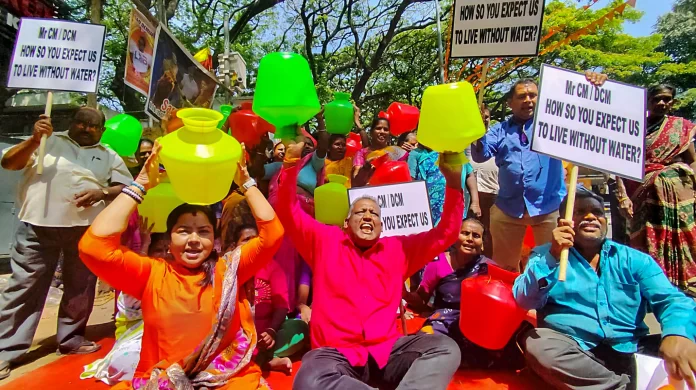Yes, if you listen to a bunch of people driving a spirited campaign to turn the city’s water woes around. Understandably, the current acute drinking water shortage has made the citizens sceptical about Bengaluru’s future. Many even are ready to declare that the city would go dry very soon.
At the Jal Pe Charcha conclave at the Bosch campus on 29 April 2024 afternoon, several organizations came together to announce how they are working to make Bengaluru a water-positive city in just over two years. It was good to hear that many plans are already in various stages of implementation.
Organizations leading the ‘Water Positive Bengaluru’ campaign include Aquakraft, Bosch, Boson White Water, The Art of Living, Leo Burnett, Hands-On CSR, AqVerium, Biome, United Way, and a few others are not part of this campaign yet but have been driving their initiatives quite effectively.
The good news is that a few business organizations have been chipping in with serious CSR money, especially for the revival of several lakes, in and around the city. The water champions believe that CSR funds could act like seed capital for several water projects. The state government and municipal bodies are often happy to take such initiatives to the next level.
The success of ‘Water Positive Bengaluru’ hinges on businesses, NGOs, and government bodies working in tandem. Easier said than done, one would say, but the tide appears to be changing and those who so far thought that water was someone else’s problem to solve are now eager to play their part. It is high time BWSSB joins the campaign and reduces water leakage from a mind-boggling 40%.
The central premise of the campaign is that Bengaluru gets enough rainfall in a year to meet everyone’s needs. This premise holds good for most cities and in fact, the whole country. The biggest challenge is – 70 plus per cent of the rainfall is not captured and hence wasted. If even half of this water is captured, can we say the city’s dependence on Cauvery water can be reduced significantly?
Here’s the list of the initiatives that Jal Pe Charcha came up with and who is addressing them in brackets:
- How to capture most of the rainfall for reuse and charge aquifers, dry wells and bore wells (Art of Living)
- How to increase reuse of the so-called wastewater for commercial purposes (AquaKraft)
- How a create a robust marketplace for buying and selling treated wastewater (AquaKraft, AqVerium)
- How to use technology to enhance the efficiency of equipment and process (Bosch)
- How to work with communities in and around the city as partners for change (Art of Living)
- How to enhance governance – a key factor in the success of any public initiative (open question)
- How to incentivize businesses and citizens to adopt efficient water use practices through a Water Sustainability Score (Leo Burnett)
The Jal Pe Charcha announced the formation of the Bengaluru Water Collective to ensure cohesion among the players. The collective plans to raise Rs. 500 crores to fast tract the plans. With big players in the game, raising this capital for a city that contributes to more than 70% of Karnataka’s GDP, is the country’s start-up and knowledge capital, should not be difficult. Yet, they will need a suave fund-raiser to raise capital from the city’s high net-worth citizens and impact capital funds.
It looks like the time for respecting water has arrived. Pricing water smartly is key. The current water crisis in the city is purely people-made. There’s nothing a collective of spirited people cannot solve. The ‘Water Positive Bengaluru’ dream has most of what it could take to come true.










